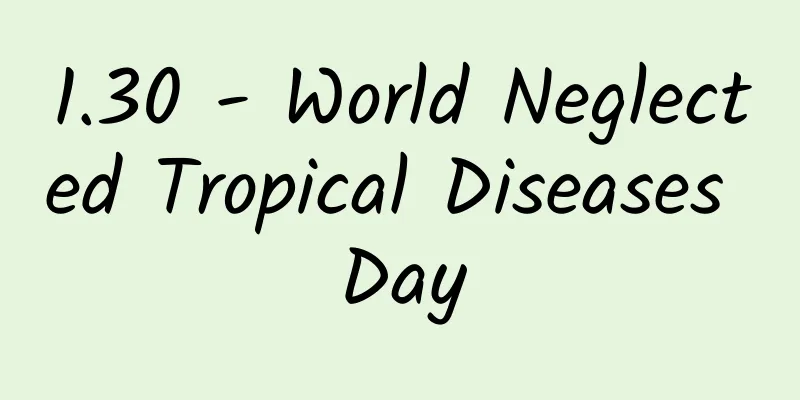1.30 - World Neglected Tropical Diseases Day

|
1.30 - World Neglected Tropical Diseases Day Learn more about neglected tropical diseases What are neglected tropical diseases? Neglected Tropical Diseases (NTDs) are an ancient class of impoverishing diseases that are prevalent in 149 developing countries in tropical and subtropical regions around the world. These diseases are mostly caused by pathogens such as parasites, viruses, bacteria and fungi, and mainly include 21 diseases (types) such as Chagas disease, echinococcosis, leishmaniasis, lymphatic filariasis, onchocerciasis, schistosomiasis, soil-transmitted helminthiasis, food-borne trematodes, tapeworms and cysticercosis, African trypanosomiasis, dracunculiasis, dengue fever and chikungunya, scabies and external parasites, rabies, Buruli ulcer, leprosy, blinding trachoma, yaws, snake bites, mycetoma and other deep fungal diseases and gangrenous stomatitis. These diseases impose a devastating human, social and economic burden on more than 1 billion people worldwide, costing developing countries billions of dollars each year and trapping many families in a cycle of poverty. With the right treatments and interventions, neglected tropical diseases are preventable, controllable, and in many cases eradicated. Why is it called a neglected disease? Because these diseases are mainly prevalent among poor people in tropical and subtropical areas with hot and humid climates, these people are often neglected due to their lack of social status. Even in the current era of universal health coverage, the resources invested in the prevention and control of neglected tropical diseases are very limited. The history of Neglected Tropical Diseases Day Since 2019, the Global Neglected Tropical Diseases Partners have organized various activities on January 30th of each year, lighting up iconic monuments and buildings to call for attention to neglected tropical diseases. On May 31, 2021, the World Health Assembly officially confirmed January 30th of each year as World Neglected Tropical Diseases Day to call on the world to pay attention to the prevention and control of neglected tropical diseases, commend the achievements made, and gain more support for the control and elimination of these diseases. In 2024, the theme of World Neglected Tropical Diseases Day is "Unite. Act. Eliminate", calling on everyone to work together to prevent, control and eliminate neglected tropical diseases. What are the prevalent NTDs in our country? "Neglected tropical diseases" are an important public health issue in my country. China is seriously affected by at least 11 types/groups of "neglected tropical diseases", among which lymphatic filariasis, visceral leishmaniasis, Japanese schistosomiasis, soil-transmitted helminthiasis, echinococcosis, foodborne trematodes and tapeworm/cysticercosis are parasitic diseases that were once prevalent or are still prevalent in my country. What is the progress in the prevention and control of these parasitic diseases? my country's neglected tropical diseases have entered a new stage of control or elimination. In 2007, my country eliminated filariasis. By the end of 2023, schistosomiasis in my country will reach the transmission blocking standard. Visceral leishmaniasis is at a low level of prevalence. The prevalence of echinococcosis has been basically controlled. The infection rates of soil-transmitted nematodes and food-borne parasites are on a downward trend. However, the elimination process of key parasitic diseases in various regions is uneven. The risk of parasitic disease transmission in some local areas is still high. There is also the risk of importation of neglected tropical diseases. There is still a long way to go in prevention and control. **Neglected tropical diseases are mostly infectious diseases. Improving people's awareness of hygienic behavior and developing good hygienic behavior habits are the most economical and effective prevention and control measures. **For example, wash hands before and after meals, do not drink raw water, do not eat unclean raw fruits and vegetables, and uncooked meat to prevent diseases from entering the body through the mouth; take good personal protection to prevent mosquito bites, avoid contact with infected water and work barefoot. |
<<: Is lard really nutritious and safe?
>>: Jia Haiwei, what are the three stages of treatment for high-risk neuroblastoma?
Recommend
Diagnosis of anovulation
There are many common problems in women's bod...
Diabetes at a young age is caused by these lifestyle habits! Be careful at all ages
Four reasons why blood sugar levels rise Young pe...
What should I pay attention to when my child takes hormones? To reduce the side effects, how can I eat well without gaining weight?
How to achieve a reasonable nutritional balance A...
When will the 2020 Starbucks Valentine's Day limited edition cups be released? How many types of Starbucks 2020 Valentine's Day cups are there?
We all know that Starbucks will launch a series o...
Is it good for a woman with small feet?
There are many viewpoints on a good life, and eve...
Thrombocytopenia in children? A big crisis in a small body
Author: Li Shanshan, attending physician at the C...
I feel uncomfortable in my stomach after doing vaginal ultrasound
There is a big difference between the physical ex...
What should I do if my vagina is not tight anymore?
A woman's vagina is a relatively important pa...
I gained 2 catties in 6 days by taking Chinese medicine for regulating menstruation
Women's menstrual period is a special functio...
Vaginal itching during menstruation
Some female friends often feel itching at the vag...
Where can I take photos of pregnant women?
Many pregnant women may want to take some materni...
Who should eat raisins? How are raisins made?
The flavonoids contained in raisins can effective...
What anti-inflammatory medicine should I take for clitoral redness, swelling and pain?
In general, redness and swelling of the clitoris ...
What are the main contents of breast biopsy?
Breast disease has always been a very common and ...









